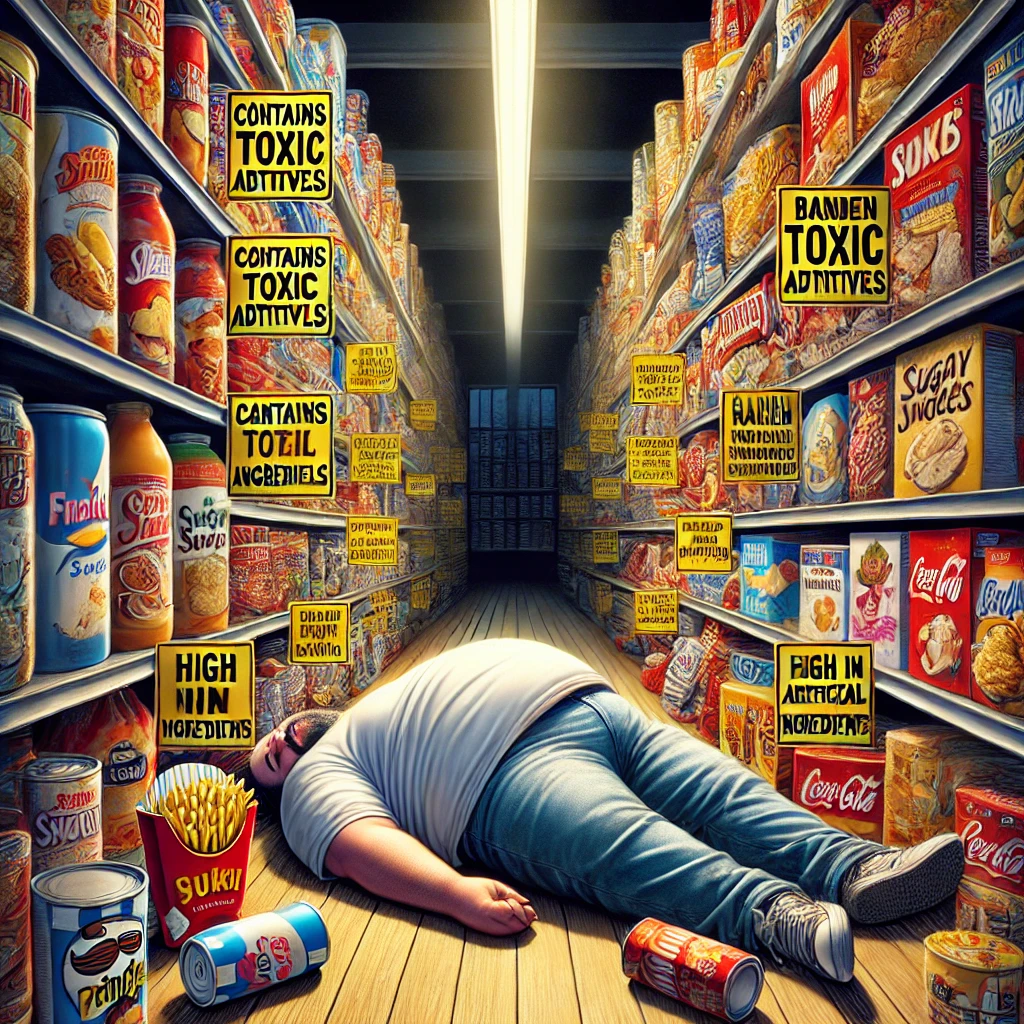
Recently, the US health secretary, Robert F. Kennedy Jr., announced a ban of nine chemical compounds used in food industry, synthetic food dyes. Mr. Kennedy believes that synthetic chemicals in processed food are behind the U.S. explosion in rates of chronic illnesses and obesity. This is also the reason why the life expectancy at birth has been declining in the USA over the last 10 years (Fig.1). Americans have the shortest life span among industrialized nations, and higher rates of almost all chronic conditions. This point of view shared for decades by hundreds of thousands of doctors, nutritionists and health care providers.

Yet, nothing was ever done legislatively. Over the last 25 years, the US food industry kept adding on average 35 new synthetic food additives per year. Only 2 of them were seeking formal approval by FDA.
The United States is the world champion in terms of food chemistry. There are over 10,000 additives in the food we eat — food dies, flavors, emulsifiers, preservatives, ingredients in packaging, remnants of pesticides (including Round-up) and insecticides. None of these chemicals if good for us or even neutral. For example, the #1 food additive monosodium glutamate may cause neurological defects. Artificial colors increase risk of thyroid tumors; sodium nitrate turns into a cancerogenic nitrosamine. The full list is 10,000 entries long. These chemicals are mostly made of petroleum and added in virtually all so-called ultraprocessed foods, which constitute over 60% of products in the supermarkets (Fig.2). Americans consume a way more of these foods than any other nation in the world.

European countries allow at least 10 times fewer chemicals in food, and food companies must conduct extensive and expensive studies in order to convince regulators to add a new one. The United States is the only developed country that allows companies to self-certify the safety of new chemicals without prior FDA approval. This is because of a regulatory pathway known as GRAS, or “generally recognized as safe.” Under GRAS, companies are expected, but not required, to notify the F.D.A. when they introduce a new compound. The burden of proved the compounds unsafe lies with the F.D.A., which means years of research and potential lawsuits from food companies for unjustified product withdrawal. As a result, very few chemicals actually get instigated, and there are roughly 1,000 chemicals in the food supply whose identities are unknown to regulators.
Research on chemicals led by FDA is usually narrow in focus and follows the guidelines of new drugs investigation on cancerogenicity and mutagenicity in animal or laboratory studies of fixed timeframe (usually 90 days). Most safety studies examine single chemicals in isolation, not how the hundreds or thousands of chemicals we consume might interact with one another or affect our long-term health. And a single jar of a dip sauce may include up to 70 chemical ingredients.
Despite so obvious issues with food and nutrition, very little research is funded by government, for decades. Since 2015, funding for nutrition comprised only 5% of National Institutes of Health’s budget. Food companies sponsor their own research, but it is well known to be biased and favorable for the sponsors.
Provided this background, it is remarkable that Mr. Kennedy’s crusade over food industry had an immediate impact of NIH and FDA research direction. It was just announced that both NIH and FDA open a broad investigation on the role of ultraprocessed food in spreading chronic diseases and on the role of nutrition in our well-being.https://www.fda.gov/news-events/press-announcements/fda-and-nih-announce-innovative-joint-nutrition-regulatory-science-program
The war for healthy nutrition is only starting and food companies will surely fight back. Mr. Kennedy admitted in a recent press briefing that he only has an “understanding” with the food industry that the food dyes he’s focused on will be phased out. Further reporting suggested that few food companies have committed to doing this yet. But I do believe that our new health secretary is committed to this fight and the industry will fundamentally change, just how the auto industry shifted to the electric cars.